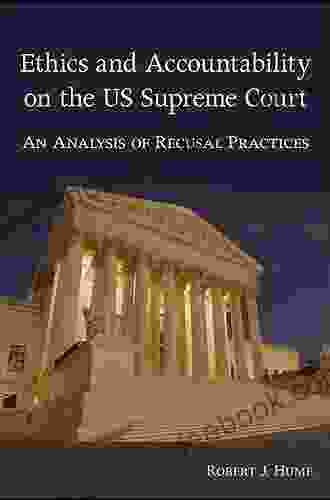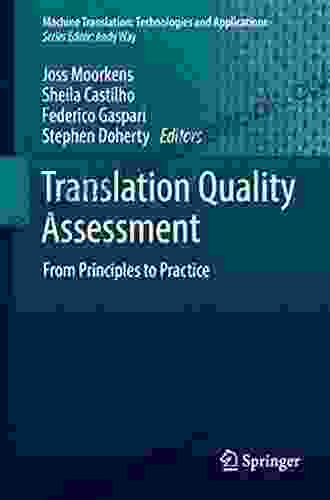An Analysis of Recusal Practices in American Constitutionalism: A Comprehensive Exploration

Recusal, the act of disqualifying oneself from participating in a legal proceeding due to a conflict of interest or other ethical concerns, is a fundamental principle of American constitutionalism. It is essential to the maintenance of an impartial and fair judicial system, as it ensures that judges and other decision-makers are not influenced by personal biases or external pressures. This article will provide an in-depth analysis of recusal practices in American constitutionalism, exploring the historical context, legal framework, ethical considerations, and recent controversies surrounding recusal.
The concept of recusal has its roots in the common law tradition and has been recognized in American jurisprudence since the founding of the republic. The first recorded instance of recusal in the United States occurred in 1793, when Supreme Court Justice James Wilson recused himself from a case involving a land dispute in which he had a financial interest.
In the early 19th century, the principle of recusal was codified in the Canons of Judicial Ethics, which were adopted by the American Bar Association in 1908. These canons provided specific guidelines for when judges should recuse themselves, including conflicts of interest, personal relationships with parties to the case, and financial interests in the outcome of the case.
4.6 out of 5
| Language | : | English |
| File size | : | 11660 KB |
| Text-to-Speech | : | Enabled |
| Screen Reader | : | Supported |
| Enhanced typesetting | : | Enabled |
| Word Wise | : | Enabled |
| Print length | : | 204 pages |
The legal framework for recusal in American constitutionalism is primarily based on the due process clause of the Fourteenth Amendment, which guarantees the right to a fair and impartial trial. The Supreme Court has held that recusal is required in cases where a judge's impartiality might reasonably be questioned.
In addition to the Fourteenth Amendment, there are a number of statutes and rules that govern recusal in specific contexts. For example, the Code of Conduct for United States Judges requires federal judges to recuse themselves in any proceeding in which their impartiality might reasonably be questioned due to a conflict of interest, personal bias, or other ethical concerns.
Beyond the legal framework, there are a number of ethical considerations that guide recusal practices. These considerations include:
- Impartiality: Judges must be impartial and free from any bias or prejudice that could affect their ability to make fair and unbiased decisions.
- Appearance of impropriety: Even if a judge is impartial, they must avoid any appearance of impropriety that could undermine public confidence in the judiciary.
- Conflict of interest: Judges must avoid any situation in which they have a personal or financial interest in the outcome of a case that could influence their decision-making.
- Personal relationships: Judges must avoid any personal relationships with parties to a case that could create a conflict of interest or the appearance of impropriety.
In recent years, recusal practices in American constitutionalism have been the subject of several controversies. One of the most notable controversies involved Supreme Court Justice Clarence Thomas, who refused to recuse himself from a case involving a challenge to the Affordable Care Act. Critics argued that Justice Thomas should have recused himself because his wife, Virginia Thomas, was a vocal opponent of the Affordable Care Act and had actively lobbied against it.
Another recent controversy involved Justice Brett Kavanaugh, who refused to recuse himself from a case involving the Trump administration's travel ban. Critics argued that Justice Kavanaugh should have recused himself because he had previously made public statements criticizing the travel ban.
These controversies have raised important questions about the scope of recusal obligations and the need to balance the principles of impartiality and judicial independence.
Recusal is a fundamental principle of American constitutionalism that is essential to the maintenance of an impartial and fair judicial system. The legal framework, ethical considerations, and recent controversies surrounding recusal practices demonstrate the importance of ensuring that judges are free from any bias or prejudice that could affect their decision-making. As the judiciary faces new challenges in the 21st century, it is more important than ever to have clear and effective recusal practices in place to maintain public confidence in the impartiality and integrity of the judicial system.
- American Bar Association. (2007). Code of Conduct for United States Judges.
- Canons of Judicial Ethics. (1908). American Bar Association.
- Marshall, J. (1824). Marbury v. Madison, 5 U.S. (1 Cranch) 137.
- Thomas, C. (2021). Statement on Recusal. Supreme Court of the United States.
4.6 out of 5
| Language | : | English |
| File size | : | 11660 KB |
| Text-to-Speech | : | Enabled |
| Screen Reader | : | Supported |
| Enhanced typesetting | : | Enabled |
| Word Wise | : | Enabled |
| Print length | : | 204 pages |
Do you want to contribute by writing guest posts on this blog?
Please contact us and send us a resume of previous articles that you have written.
 Page
Page Text
Text Story
Story Library
Library Paperback
Paperback Sentence
Sentence Bookmark
Bookmark Glossary
Glossary Preface
Preface Annotation
Annotation Scroll
Scroll Codex
Codex Library card
Library card Narrative
Narrative Biography
Biography Autobiography
Autobiography Memoir
Memoir Thesaurus
Thesaurus Resolution
Resolution Catalog
Catalog Card Catalog
Card Catalog Borrowing
Borrowing Stacks
Stacks Archives
Archives Study
Study Scholarly
Scholarly Lending
Lending Reserve
Reserve Academic
Academic Reading Room
Reading Room Rare Books
Rare Books Special Collections
Special Collections Literacy
Literacy Study Group
Study Group Dissertation
Dissertation Awards
Awards Reading List
Reading List Book Club
Book Club Theory
Theory Textbooks
Textbooks Clarke Ching
Clarke Ching Gilly Macmillan
Gilly Macmillan Kenneth Rosenberg
Kenneth Rosenberg Barry Ahern
Barry Ahern Anthony Thackston
Anthony Thackston J Stephen Sadler
J Stephen Sadler Suzanne Van Rooyen
Suzanne Van Rooyen Stephanie Phillips
Stephanie Phillips Brian Schofield
Brian Schofield Erica Ekrem
Erica Ekrem Kyle Campbell Miller
Kyle Campbell Miller Beth Ruggiero York
Beth Ruggiero York Eric M Bailey
Eric M Bailey Mary Katherine Fons
Mary Katherine Fons Ricky Tucker
Ricky Tucker Mike Cox
Mike Cox Chuck Hornung
Chuck Hornung Francis Srun
Francis Srun Janice Dickinson
Janice Dickinson Catherine Meyrick
Catherine Meyrick
Light bulbAdvertise smarter! Our strategic ad space ensures maximum exposure. Reserve your spot today!

 Junichiro TanizakiSilas Moore, the Legendary Rat Catcher of 19th Century London: His Life,...
Junichiro TanizakiSilas Moore, the Legendary Rat Catcher of 19th Century London: His Life,... Chadwick PowellFollow ·2.3k
Chadwick PowellFollow ·2.3k Chad PriceFollow ·17.2k
Chad PriceFollow ·17.2k Daniel KnightFollow ·3.6k
Daniel KnightFollow ·3.6k Vic ParkerFollow ·7.1k
Vic ParkerFollow ·7.1k Anthony WellsFollow ·9.5k
Anthony WellsFollow ·9.5k Russell MitchellFollow ·13k
Russell MitchellFollow ·13k Ignacio HayesFollow ·10k
Ignacio HayesFollow ·10k Lucas ReedFollow ·3.8k
Lucas ReedFollow ·3.8k

 Darren Nelson
Darren NelsonLife of Napoleon Bonaparte, Volume II: His Rise to Power
**** Napoleon...

 Reed Mitchell
Reed MitchellLucy Sullivan Is Getting Married: A Tale of Love,...
Lucy Sullivan is a...

 Chuck Mitchell
Chuck MitchellBeginner's Crash Course on Python Language: Getting...
Python is a widely used programming...

 Henry Hayes
Henry HayesThreads Fitting For Every Figure: A Comprehensive Guide...
Finding the perfect fit can be a...

 Duane Kelly
Duane KellyA Comprehensive Cat Guide to Money: Feline Finance for...
In the world of finance, humans have...

 Jedidiah Hayes
Jedidiah HayesThe Sentimental Hippo And His Friends
Harvey the hippo was a very sentimental...
4.6 out of 5
| Language | : | English |
| File size | : | 11660 KB |
| Text-to-Speech | : | Enabled |
| Screen Reader | : | Supported |
| Enhanced typesetting | : | Enabled |
| Word Wise | : | Enabled |
| Print length | : | 204 pages |










